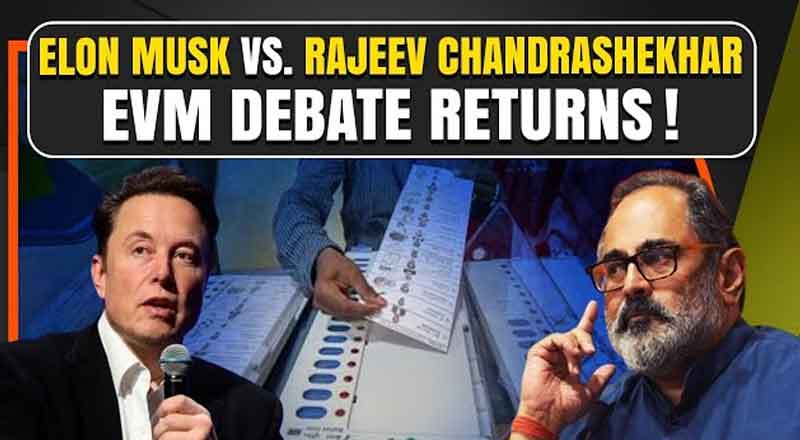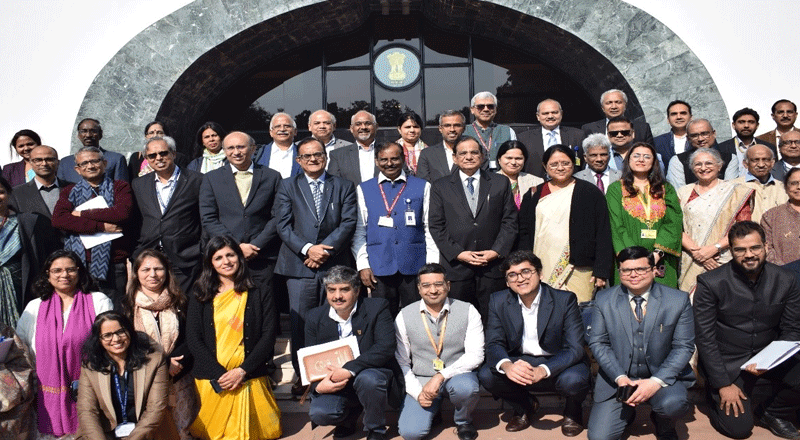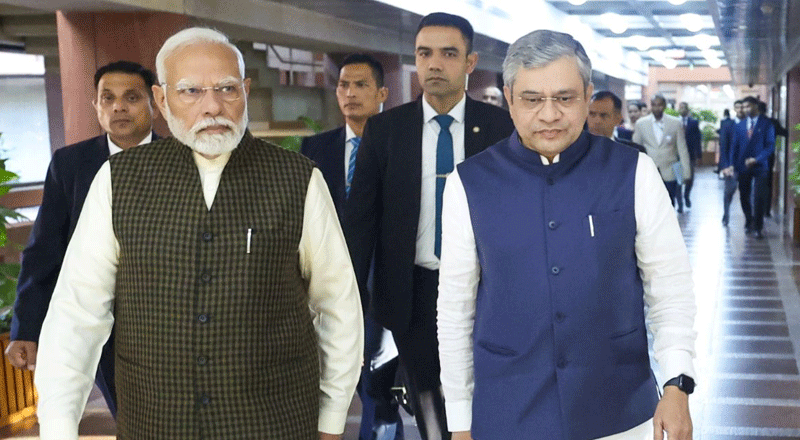- Controversies over the 2024 Lok Sabha results persist, fueled by EVM tampering allegations and Elon Musk’s remarks.
- The Mumbai North West returning officer denied EVM manipulation claims, stating EVMs are self-contained and non-programmable, requiring no mobile OTP for unlocking.
- Rahul Gandhi criticized EVMs as “black boxes,” highlighting concerns about India’s electoral transparency and accountability.
- Elon Musk, CEO of Tesla and SpaceX, added to the discourse by advocating for the elimination of electronic voting machines, citing potential vulnerabilities to hacking by humans or AI.
- Former Union Minister Rajeev Chandrasekhar defended the security protocols of Indian EVMs. Chandrasekhar, a former Minister of State for Electronics and IT, countered Musk’s assertion.
Controversies surrounding the 2024 Lok Sabha election results continue to reverberate, driven by allegations of Electronic Voting Machine (EVM) tampering and recent comments from Elon Musk. The returning officer for Mumbai North West constituency dismissed claims of EVM manipulation, asserting that EVMs are self-contained devices and do not require mobile OTPs for unlocking, as they are non-programmable.
The controversy ignited following reports that a relative of Shiv Sena candidate Ravindra Waikar, who secured victory by a slender margin of 48 votes, was seen using a mobile phone purportedly connected to an EVM during vote counting on June 4. Rahul Gandhi, along with other opposition leaders, referenced a Mid-Day report alleging this activity and accused Waikar’s relative of interfering with the election process.
In response, the Bharatiya Janata Party (BJP) called on the Election Commission of India (ECI) to take legal action against those disseminating what they termed as false information. Meanwhile, Mumbai North West’s returning officer Vandana Suryavanshi labelled the allegations as “false news” and issued defamation notices to Mid-Day and Marathi daily Lokmat for allegedly publishing misleading information.
Tensions escalated when the Vanrai Police charged Ravindra Waikar’s brother-in-law, Mangesh Pandilkar, and polling official Dinesh Gurav under Section 188 of the Indian Penal Code for violating the ECI’s ban on mobile phones inside counting centers. Suryavanshi further declared that both media outlets had 24 hours to explain why criminal proceedings under Sections 499 and 505 should not be initiated against them, as reported by PTI.
The opposition’s criticism of EVMs gained momentum, with Rahul Gandhi describing them as “black boxes” and raising significant concerns about the transparency and accountability of India’s electoral process. He argued, “EVMs in India are ‘black boxes,’ and there is no opportunity for scrutiny. This lack of transparency raises serious concerns about the electoral process. Without accountability, democracy becomes a sham and is susceptible to fraud.”
Elon Musk, CEO of Tesla and SpaceX, added to the discourse by advocating for the elimination of electronic voting machines, citing potential vulnerabilities to hacking by humans or AI. His comments prompted a swift rebuttal from former Union Minister Rajeev Chandrasekhar, who defended the security protocols of Indian EVMs. Chandrasekhar, a former Minister of State for Electronics and IT, countered Musk’s assertion, stating, “This statement suggests that no one can build secure digital hardware, which is incorrect. While such concerns may apply to other countries with internet-connected voting machines, Indian EVMs are designed to be secure and isolated from any network.”
Amid mounting pressure, Congress leader Prithviraj Chavan demanded that the election result for the Mumbai North West Lok Sabha seat be suspended. He urged the ECI to convene a meeting with all political parties to thoroughly discuss the issue and ensure transparency in the investigation into the alleged unauthorized use of a mobile phone during the vote counting process.
The ongoing controversy underscores the heightened scrutiny and polarized opinions surrounding the use of EVMs in India’s democratic process. It has sparked broader discussions on electoral integrity, technological safeguards, and the need for transparent electoral practices to uphold the sanctity of India’s electoral democracy.
As the debate unfolds, stakeholders across the political spectrum continue to advocate for stringent measures to ensure fair elections and maintain public trust in the electoral process. The outcome of these deliberations could potentially shape future policies regarding the use and regulation of electronic voting technology in India.
(With inputs from agencies)





